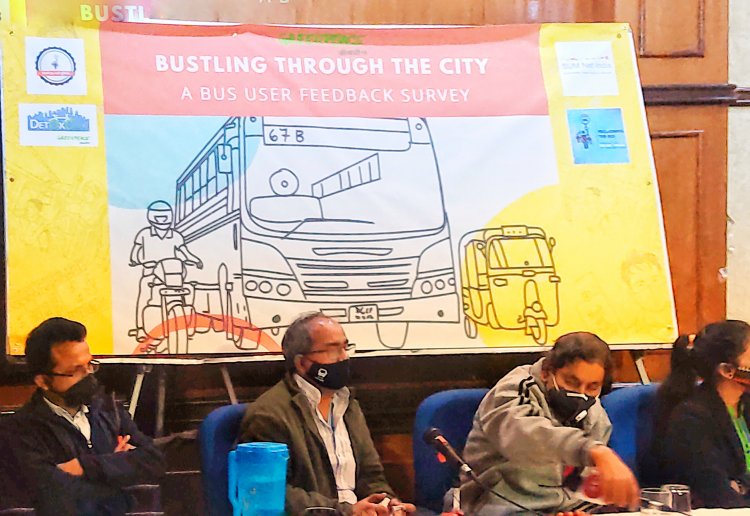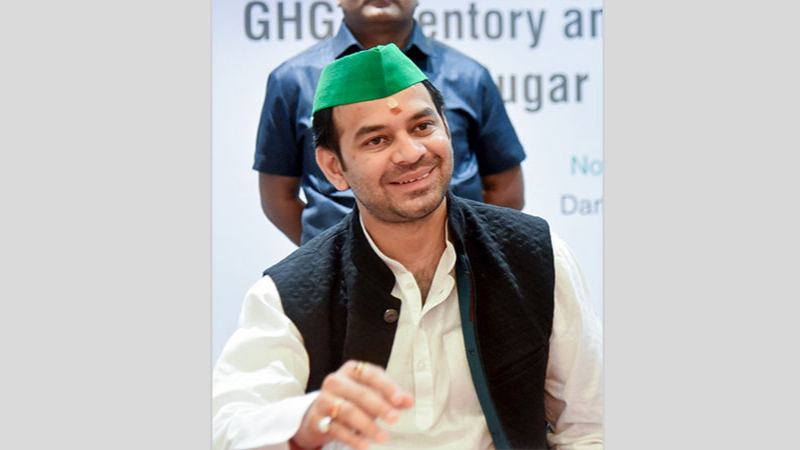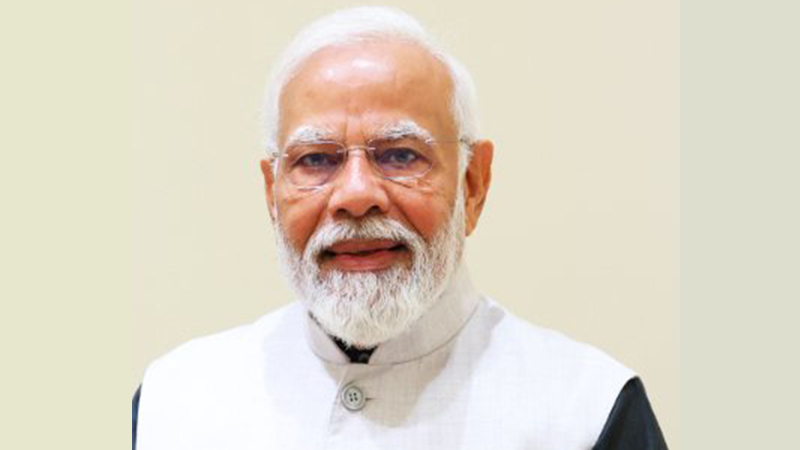80% Respondents From Delhi Consider Free Public Bus Services for Women a Good Initiative: Greenpeace India study
According to the study based on the responses from bus commuters varying across genders, age groups and localities, 89.1% respondents said the bus was their preferred mode of transport in the capital city and a whopping 80% of them welcomed the free services for women.

New Delhi, December 20: Greenpeace India’s latest study titled, “Bustling Through The City,” one of first of its own kind captures the experiences, emotions and challenges of bus users and predominantly Delhi Transport Corporation (DTC) bus users in the national capital. This study by Greenpeace India in collaboration with Reclaiming The Bus campaign, Delhi Bus Yatri Union and Sustainable Urban Mobility Network (SUM Net) India was released on Monday in an event at Press Club of India.
According to the study based on the responses from bus commuters varying across genders, age groups and localities, 89.1% respondents said the bus was their preferred mode of transport in the capital city and a whopping 80% of them welcomed the free services for women. One of the interesting findings was that 10% of the respondents had switched to the bus post Covid-19, this is assumed to be a result of the lockdown affecting household income and expenditure. Also, contrary to popular notion that public transport travel time is delayed, 71% of surveyed bus users reported that their average daily travel time is less than 30 minutes.
It is noteworthy that the transport sector is the third largest CO2 emitter in India, a key contributor to India’s air pollution crisis, while road transport alone accounts for 90% of the transport sector’s total emissions in the country. Apart from the environmental benefits, emphasizing public transport infrastructure provides an affordable, equitable mode of transport for a majority of our population.
Increasing the bus fleet was marked as the top most demand, according to the study. 40% of the respondents also felt bus services should be made free for all and can be made more convenient with facilities like toilets at bus stops. A majority of the respondents did not own personal vehicles, showing that public transport while reducing emissions is also an accessible, equitable mode of transport for citizens in Delhi.
“This report supports our demand for more and safely accessible buses connecting all areas in Delhi. The Government should focus more on bus users while planning for the city. 70-80% of people in Delhi do not own cars and private vehicles and instead use buses and shared transport. They are directly contributing in the fight against the air pollution and climate crisis engulfing Delhi. Delhi Government is providing special and free bus service to government employees and they should now seriously consider making public transport free for all,” said Nishant from Delhi Bus Yatri Union.
Commenting on the need for such a survey, Avinash Chanchal, Senior Climate and Energy Campaigner at Greenpeace India said, “The aim of our survey was to understand the challenges, emotions and motivations of bus users in Delhi. I am sure, the study would pave the way for discussions between civic authorities and citizens and lead to improved public transport infrastructure in our cities.The authorities must understand that public transport, especially buses, can help cities to be more productive, resilient, safer, cleaner and socially inclusive. ”
Quotes from speakers:
“It is alarming that the recent pollution crisis in Delhi forced schools to shut and the cases of respiratory problems have skyrocketed. This should not become ‘normal’ and an efficient public transport system must be created that can have profound effects on Delhi’s air pollution and public health, while providing access to employment and promoting social justice. Our other member partners in Maharashtra have also been campaigning for fifty buses per lakh people in all cities.”
Climate and Energy expert Soumya Dutta said: "A public bus system that is reasonably fast, frequent, either free or easily affordable to even the poorest, that connects all residential areas and major work centres, and is reasonably comfortable -- can advance the agendas of both the major climate goals from a justice perspective. It also improves the overall condition of the city, by reducing congestion and air pollution. It's far lower GHG emissions measured in per passenger-kilometer, it's much lower fare structure and the much lower investments needed for both the roads and rolling stocks, will translate to better productivity and earning outcomes for the urban poor, which directly translates to a more equitable city, while freeing up investible resources for more social infrastructure. Buses in good condition, by substantially reducing the air pollution that disproportionately affects - again, the poor, will also improve the public health outcomes.
Nanu Prasad from Reclaiming The Bus campaign said:
“Bustling Through the City is also a reminder to the government to expedite the process of adding 1000 new buses a year with a focus on building an electric fleet, and hence, DTC can contribute to India’s renewable energy commitment and build a greener future with cleaner air. The study clearly suggests that Covid-19 has impacted efficient bus use as the commuters had to wait for longer times. Hence, we have prepared a draft bus policy for Delhi to encourage public bus transport and make resources available for properly running the system.”
Rahul Goel, visiting faculty at Transportation Research and Injury Prevention Centre, IIT Delhi said:
“In a poor country, public transport is not just a solution for mitigating traffic or air pollution. It also has an integral role in providing access to livelihood, education and health for the large section of population that do not own private vehicles. In India, public transport access also has a gendered effect. Household ownership of vehicles does not improve transport access for girls and women, since vehicles are operated largely by men. Therefore an improved bus system also results in greater gender equity. In the post-covid society where income inequality has worsened and poverty rates may have risen, public transport should be treated as a support system as we hopefully emerge out of the pandemic.”





































